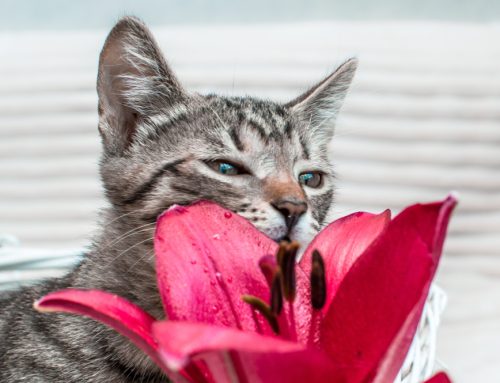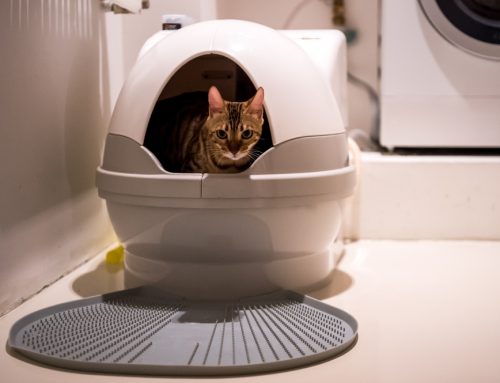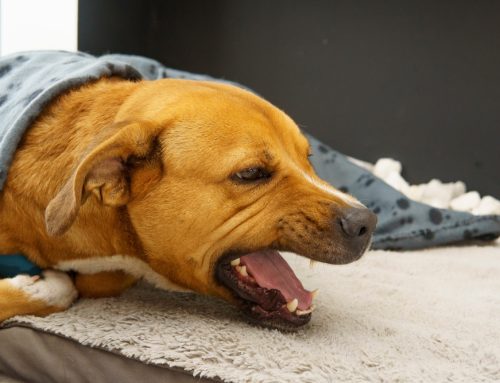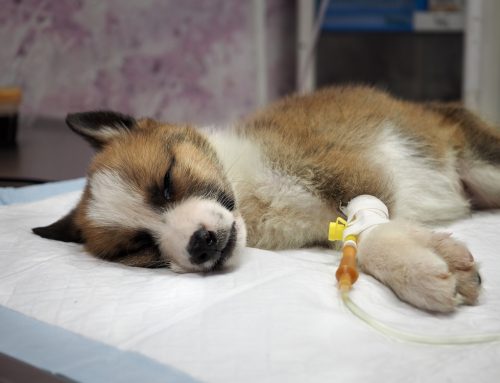The ASPCA Animal Poison Control Center takes hundreds of calls yearly to help veterinarians and pet owners manage pets who have ingested potentially toxic substances. Each year, the APCC publishes a top 10 toxins list, and rat poison (i.e., rodenticide) consistently ranks high. Rodenticide is designed to smell and taste good to animals, and both dogs and rodents can fall victim to the trap.
Active ingredients in rodenticides have evolved considerably in recent years, with numerous ingredients, products, concentrations, and formulations on the market. Our West Vets ER team is skilled in treating the various toxic effects of an array of rodenticide ingredients. We share our knowledge to help pet owners understand rodenticide dangers and know what to do if their four-legged friend is exposed.
Anticoagulant rodenticide toxicity
Anticoagulant poisons work by preventing blood clotting, which leads to excessive bleeding and death in rodents. These were previously the most common ingredients in rodenticides, but regulations from the U.S. Environmental Protection Agency caused a shift to other, more dangerous active ingredients. Signs in pets who consume anticoagulant baits are related to internal and external bleeding, and may not show up for several days. Potential signs include:
- Unexplained bruising
- Lethargy
- Pale gums
- Difficulty breathing
- Blood in the urine, stool, vomit, or from the nose or gums
- Seizures
Treatment for this toxicity is relatively straightforward in most cases. Vitamin K1 is given orally for 30 days after an exposure to normalize blood clotting, and your pet’s blood clotting status will be checked frequently. Pets with severe signs can be hospitalized and given fluids, blood transfusions, oxygen, and medications as needed.
Cholecalciferol rodenticide toxicity
This ingredient leads to increased calcium in the blood with only a small amount ingested. The excess calcium damages internal organs and tissues, especially the kidneys. Signs of this toxicity may include increased urination and thirst, weakness, or vomiting. Treatment is focused on monitoring and regulating calcium levels and supporting kidney function to prevent or counteract kidney failure. In some cases, your pet may require monitoring and treatment for several weeks to months.
Bromethalin rodenticide toxicity
Bromethalin causes brain swelling and nervous system damage. While pets must ingest a larger amount of this rodenticide than others to develop clinical signs, when they occur they are serious. Signs include stumbling, weakness, paralysis, seizures, or tremors. Nothing can directly counteract the effects of bromethalin, so treatment is mostly supportive. Close monitoring with hospitalization and medications that decrease brain swelling will give your furry pal the best chance of recovery.
Zinc and aluminum phosphide rodenticide toxicity
These ingredients are used mostly in gopher and mole baits. The phosphide interacts with stomach acid after ingestion and creates toxic phosphine gas, which causes signs within minutes and can lead to death within hours. Food increases the gas production, so do not feed your pet if you see them ingest this rodenticide. The gas irritates the stomach and affects the nervous system, liver, and kidneys, leading to:
- Vomiting and diarrhea
- Lack of coordination
- Lethargy
- Tremor or seizures
- Trouble breathing
- Abdominal pain or bloating
Treatment for phosphide rodenticide ingestion involves hospitalization, antacids to reduce gas production, liver protectant medications, and seizure medications. Phosphine gas is also toxic to humans, so ensure you ventilate the area and immediately remove vomit.
What to do if you suspect your pet has ingested rodenticide

If you see your pet ingest rat poison or note brightly colored dyes—which often are added to baits—in stool or vomit, call our West Vets ER team to let us know you are on your way to our office. Before you leave, gather as much information about the poison as you can, including determining how much was consumed, taking photos of the packaging, or bringing the remaining bait or package with you. You also can call the ASPCA Animal Poison Control Center or Pet Poison Helpline, to find experts who will help guide you and the veterinary team through your pet’s hospital stay and treatment.
If you know the ingestion occurred shortly before your arrival, the first thing we do is “decontaminate” your pet. We may induce vomiting and then administer one or more doses of activated charcoal to reduce the toxin’s absorption into your furry pal’s system. In many cases, this can prevent or dampen the development of clinical signs. If your pet already is showing signs, we will focus instead on stabilizing their condition.
You can prevent rodenticide poisoning by choosing other methods to control rodent populations around your home and keeping pets on a leash when you are in unfamiliar or rural territory. If your pet stays with a friend or family member, always ask about rodenticides that could be in the area.
The West Vets ER team is here for you and your pet if and when an emergency strikes. Rodenticides are some of the most common poisons pets ingest accidentally and can be fatal without veterinary intervention. Thankfully, most will recover with appropriate treatment, close monitoring, and hospitalization. Contact us during our extended emergency hours if your pet needs urgent veterinary care, or contact Westerville Veterinary Clinic during daytime hours for routine care.







Leave A Comment